Among the latest statements released by the National Cancer Institute (NCI) is a recognition of integrative oncology —a clinical approach that combines standard cancer treatments with the use of dietary supplements—as a safe and effective strategy to support patients during and after conventional cancer care.
Recently, a new study was published in the journal Frontiers in Pharmacology, coordinated by Dr. Massimiliano Berretta, oncologist and professor at the Department of Clinical and Experimental Medicine at the University of Messina. The study followed four patients diagnosed with malignant pleural mesothelioma, diffuse malignant peritoneal mesothelioma, intrahepatic cholangiocarcinoma, and breast cancer. After the failure of standard chemotherapy or the onset of severe adverse effects, these patients were treated using an integrative, multidisciplinary approach aimed at improving their quality of life.
Integrative Oncology: Which Supplements Can Support Conventional Cancer Therapies?

To support patients undergoing standard treatments within approved medical protocols, the study explored the use of vitamin C and D, probiotics, and medicinal mushrooms—a choice supported by existing clinical evidence and recommendations from both the NCI and the National Center for Complementary and Integrative Health (NCCIH).
The integrative treatment pathway revealed that vitamin C had a dual effect: improving patients’ quality of life and reducing the side effects of pharmacological therapies. The study emphasized that the most significant clinical benefits were observed with intravenous administration of vitamin C, although oral supplementation was also effective in patients with malignant pleural mesothelioma and intrahepatic cholangiocarcinoma.
Vitamin C, Vitamin D, Probiotics, and Medicinal Mushrooms in Support of Standard Cancer Therapies

As numerous observational studies have already demonstrated positive outcomes from the use of vitamin D in cancer care, this new research further supports its value in integrative oncology.
The same holds true for probiotics, especially strains such as Lactobacillus rhamnosus LRH11, Lactobacillus acidophilus LA5, and Bifidobacterium bifidum BB12. These were shown to help mitigate treatment side effects and restore gut eubiosis and nutrient absorption—key factors in improving both therapeutic outcomes and overall quality of life.
Medicinal Mushrooms in Support of Conventional Cancer Therapies

Medicinal mushrooms are backed by numerous studies supporting their positive role in integrative oncology. In this case study, patients were treated with a mushroom blend called Micotherapy U-Care, which includes Reishi (Ganoderma lucidum), Maitake (Grifola frondosa), Agaricus blazei Murrill, Cordyceps sinensis, and Shiitake (Lentinula edodes).
According to the NCI and NCCIH, medicinal mushrooms warrant further research, as their use has been linked to enhanced quality of life and immune modulation in cancer patients.
It is worth noting that mycotherapy has been officially recognized as an adjunct to standard cancer treatment in Japan and China for over 30 years, with a long history of safe clinical use, especially in the form of extracts—both individually and in synergistic blends.

